Regardless of the goal, when it comes to rifles you need some way to stabilize the gun.
Why a Bipod?
Bipods are fantastic tools for any rifle shooter.
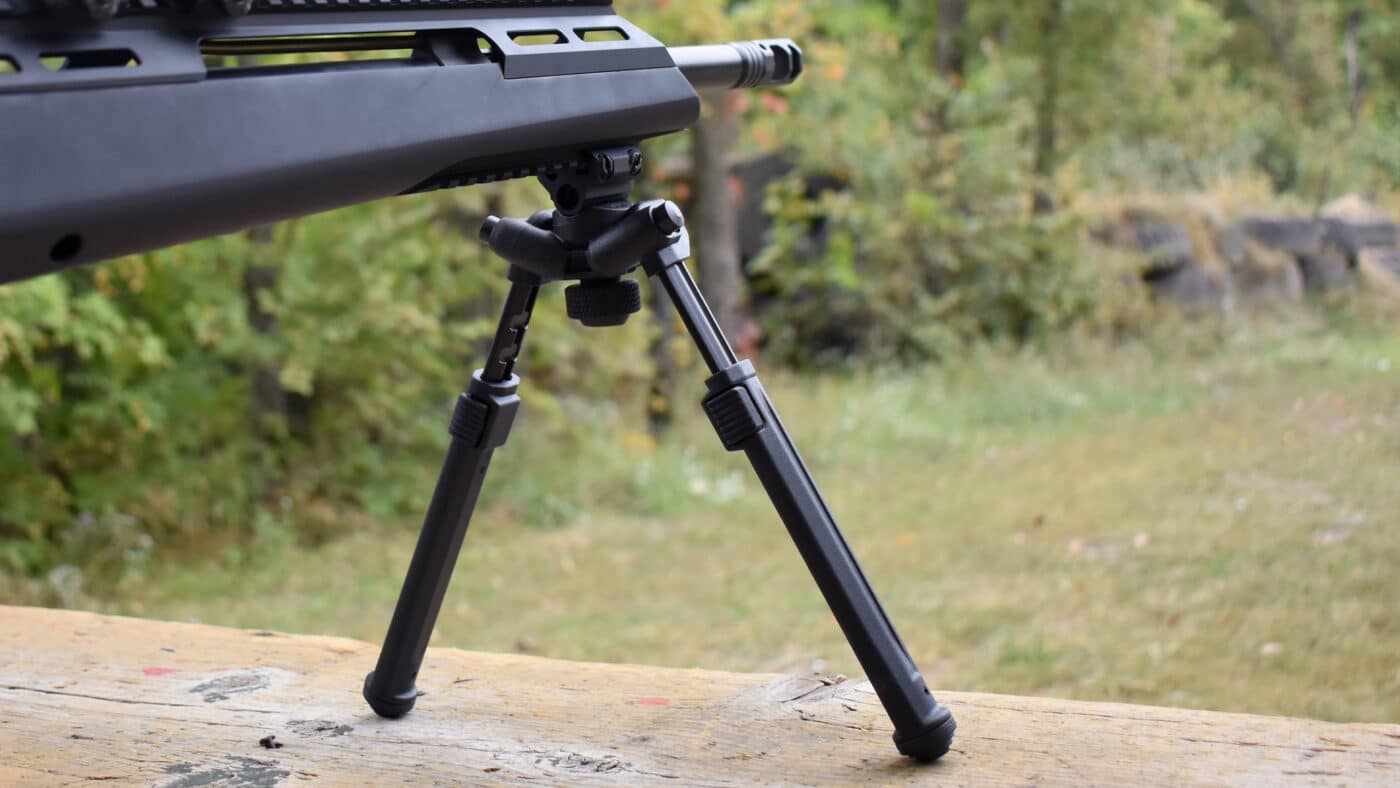
The author found the Magpul 1913 bipod worked well off the bench. The rubber feet gripped the wood well.
They mount directly to the rifle, eliminating the need to carry a bag or other equipment.
This is important in uncertain circumstances.
While bipods are common in disciplines like F-Class and PRS, each use case requires something different.
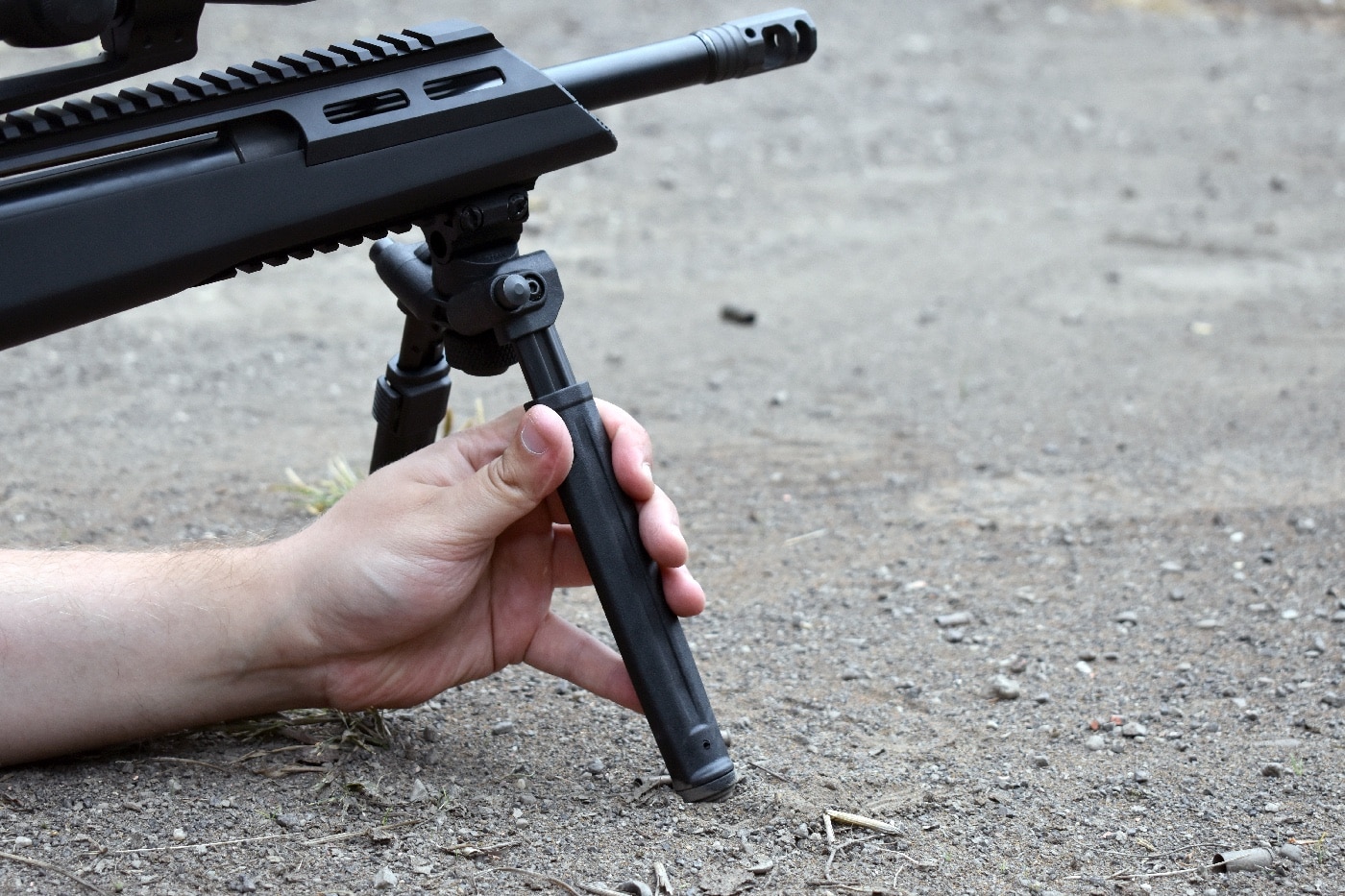
The author found the bipod was easy to adjust with one hand. Pressing a button on the rear of the legs allowed for quick height adjustments.
F-Class shooters shoot from one position prone at a fixed distance.
Precision rifle shooters need something in between.
They need to be able to build stable positions off various obstacles across different types of terrain.
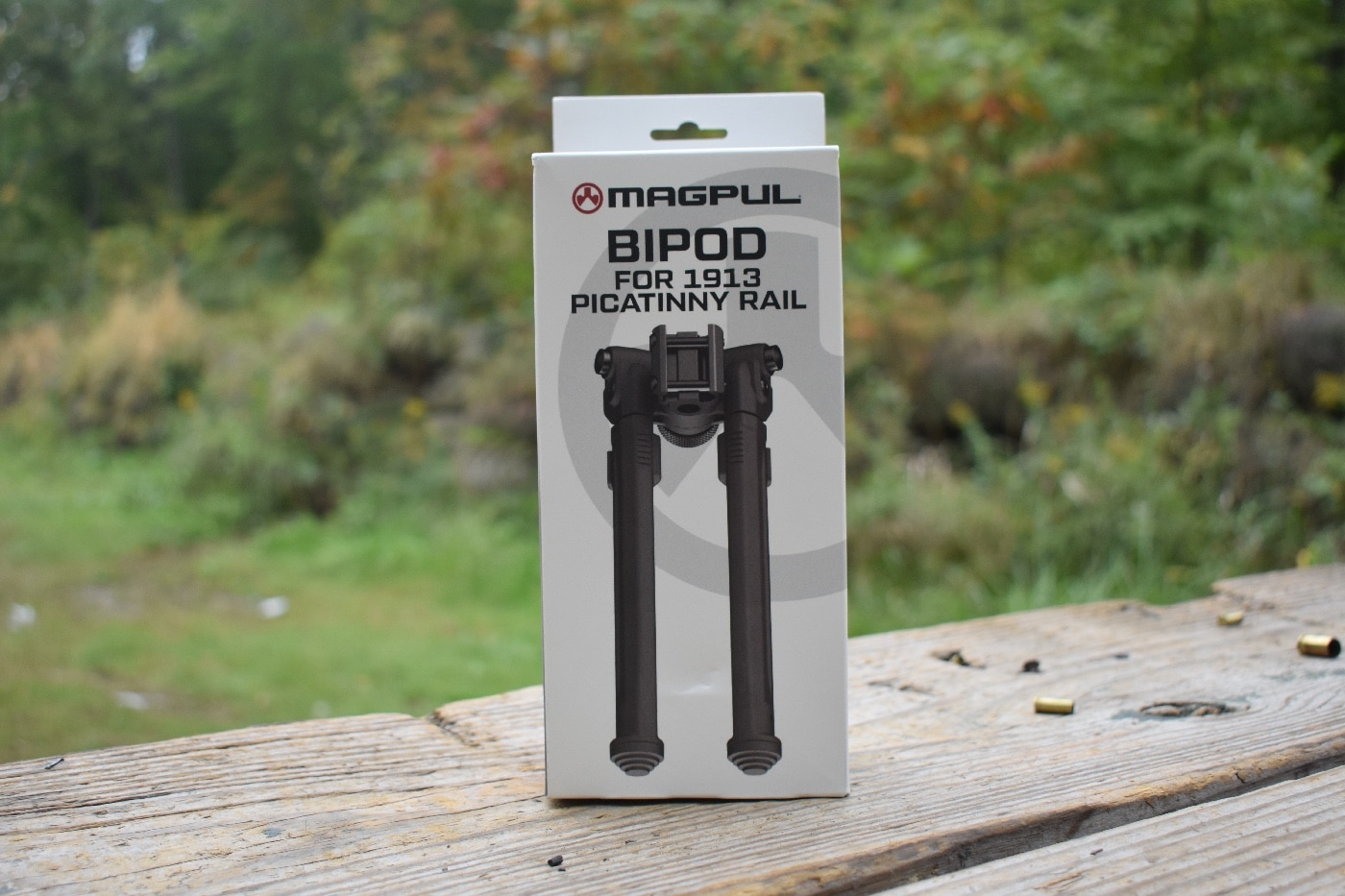
The Magpul bipod for Picatinny rail connections attaches quickly and easily to any standard 1913 rail.
Hunters also have a use for bipods, or some variation thereof.
Ive long used shooting sticks or braced my rifle on the safety bar of a treestand.
Predator hunting is one of these applications.
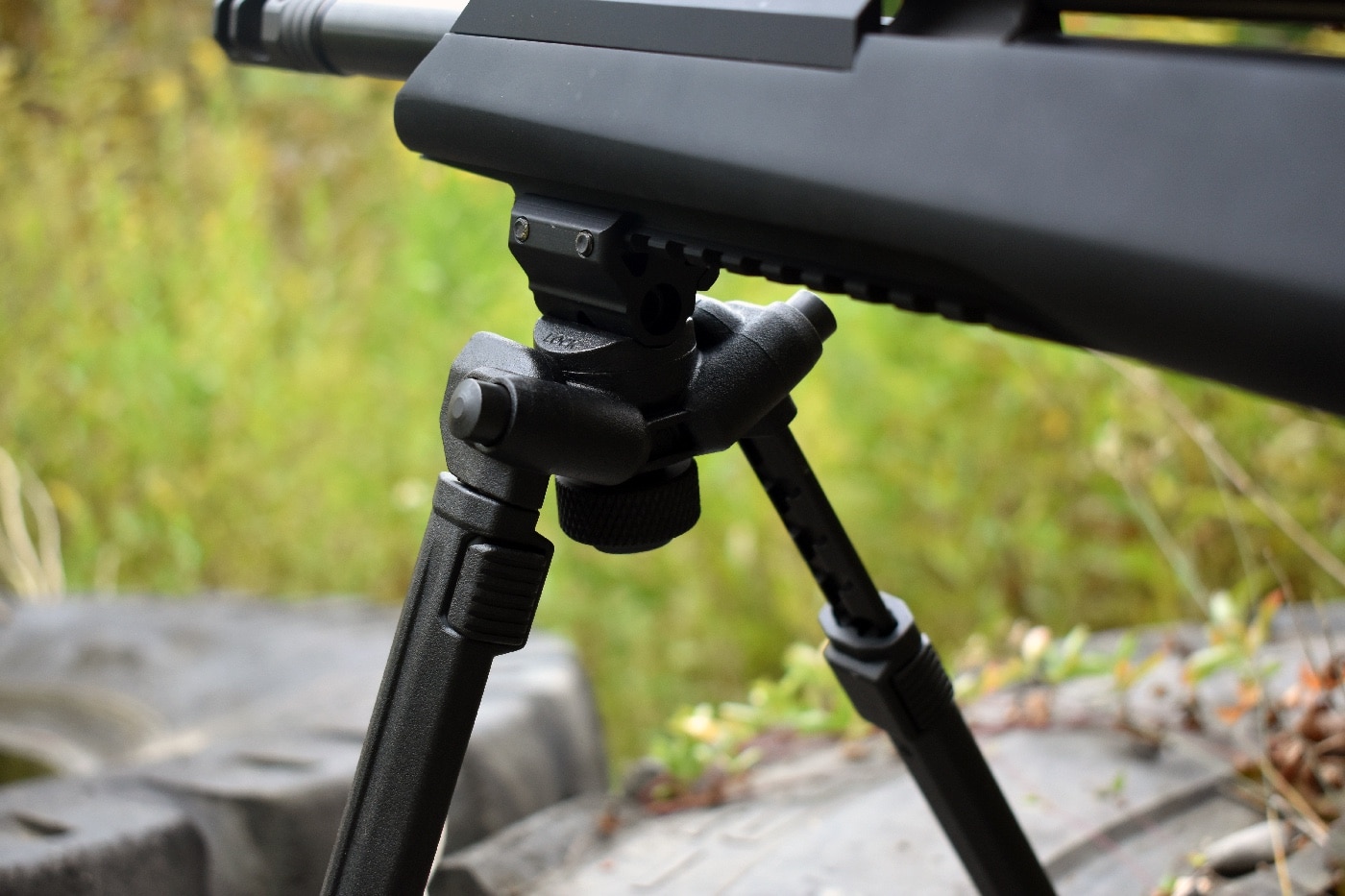
Shown here is the Magpul bipod’s head and locking knob. They are easy to access and manipulate as needed.
What Kind?
Not all bipods are created equal.
They can range in cost from $20 to nearly $1,000 or beyond.
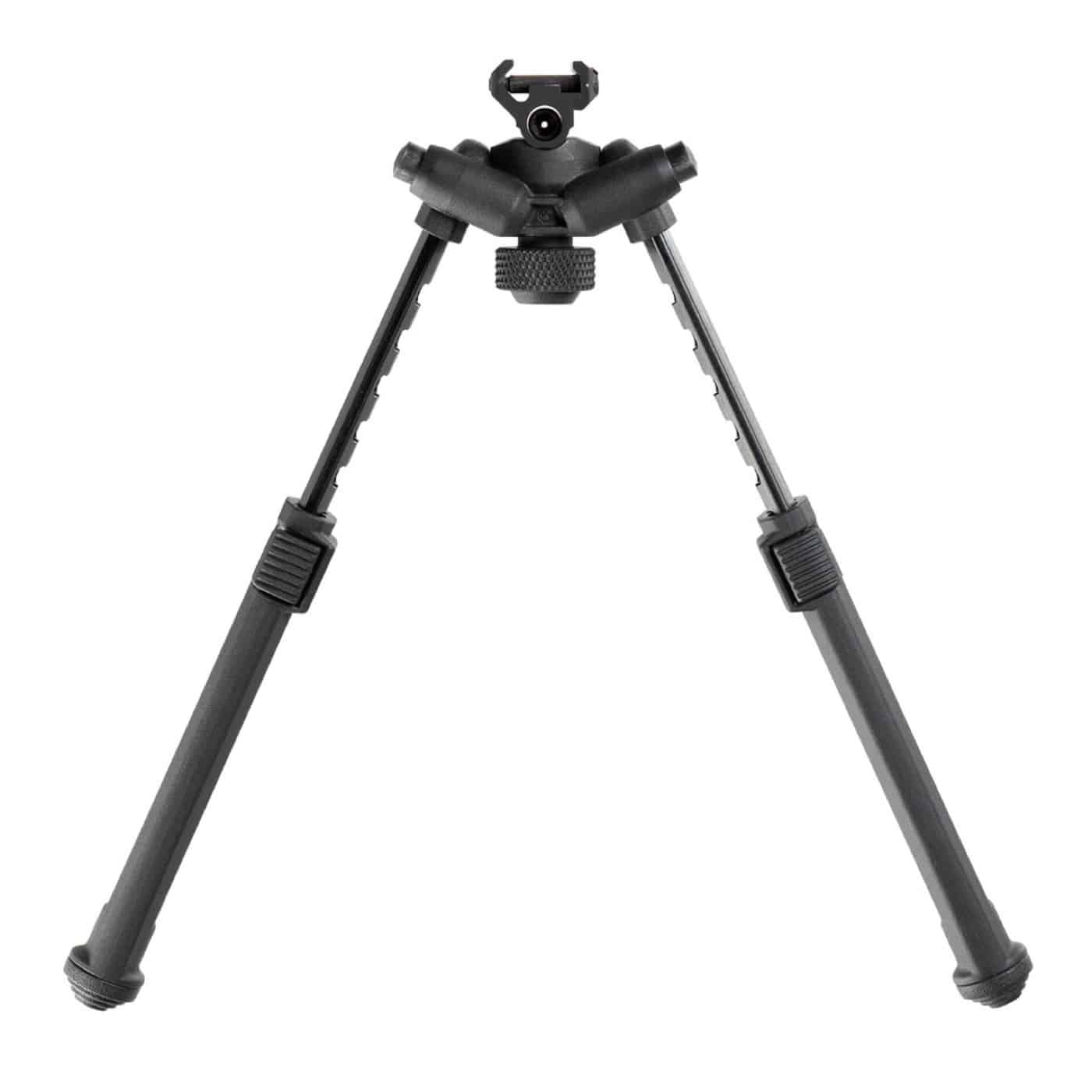
Shown here at maximum extension, the Magpul bipod legs offer a significant amount of adjustment.
This is an incredibly wide range, and all have different features and capabilities.
Some are stronger than others.
Some have more adjustability.
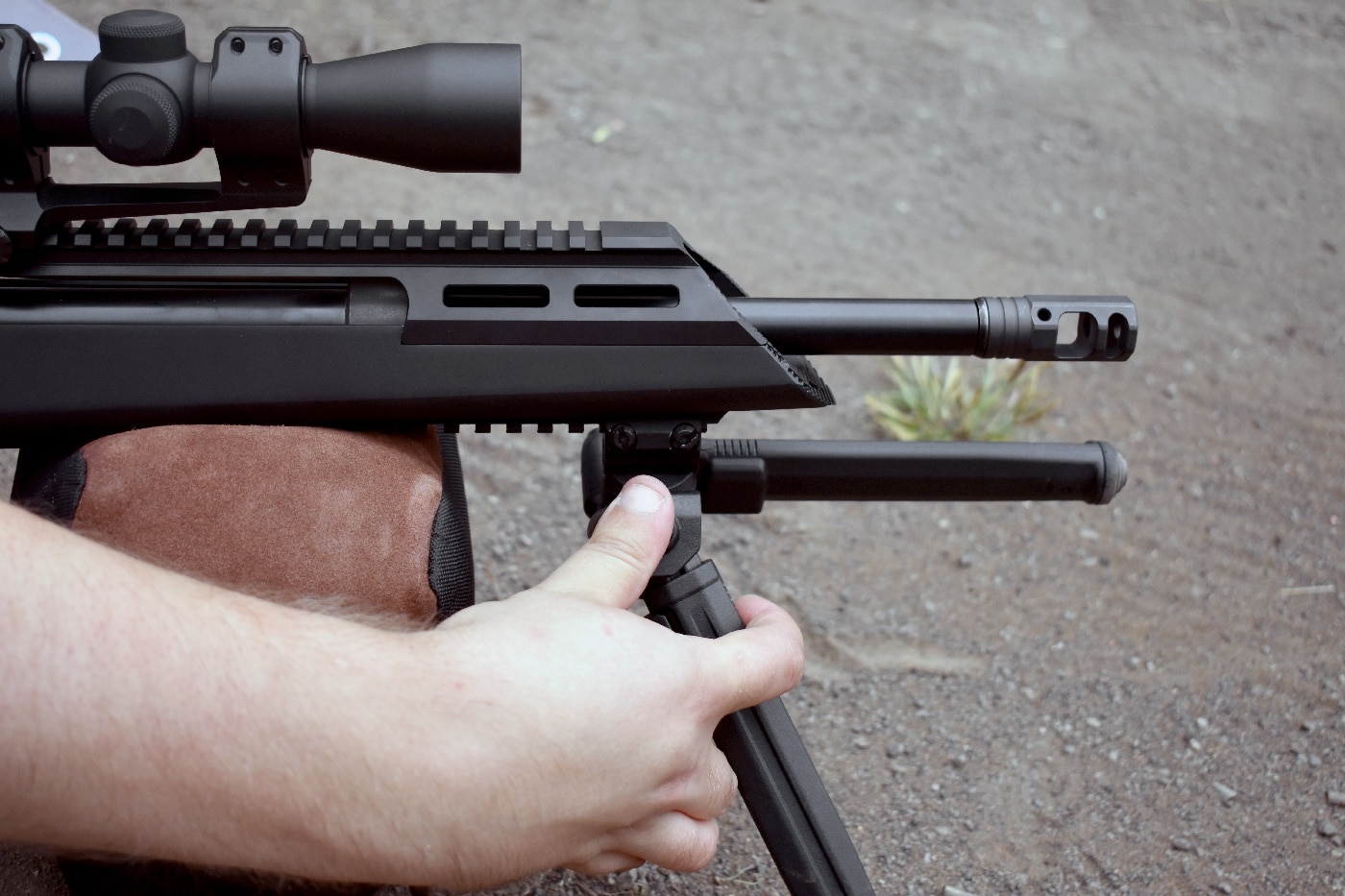
The author found it was easy to adjust point of aim as the Magpul bipod allows for adjusting up and down as well as panning left to right.
Some are faster to deploy and fold for easy carry.
Above all, a bipod needs to stay tight on the gun and serve as a sturdy platform.
Weight is also another major differentiator between bipods and applications.
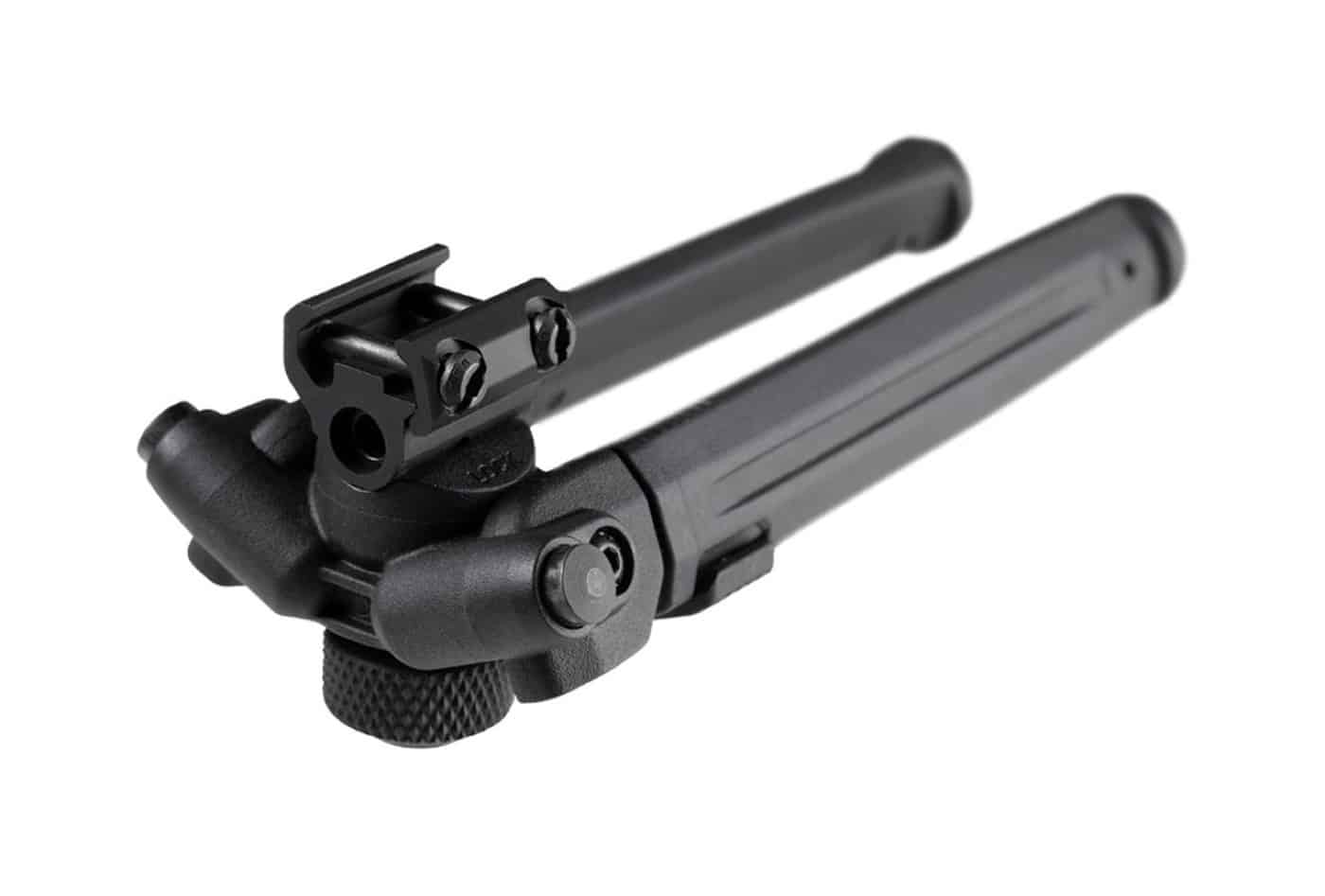
The Magpul bipod folds to a compact size. When attached to the rifle, the legs fold closely to the rifle barrel to mitigate the possibility of catching on anything.
Hunters and competition shooters generally want lighter bipods.
These are lighter to carry, especially over long distances.
All have very different applications.
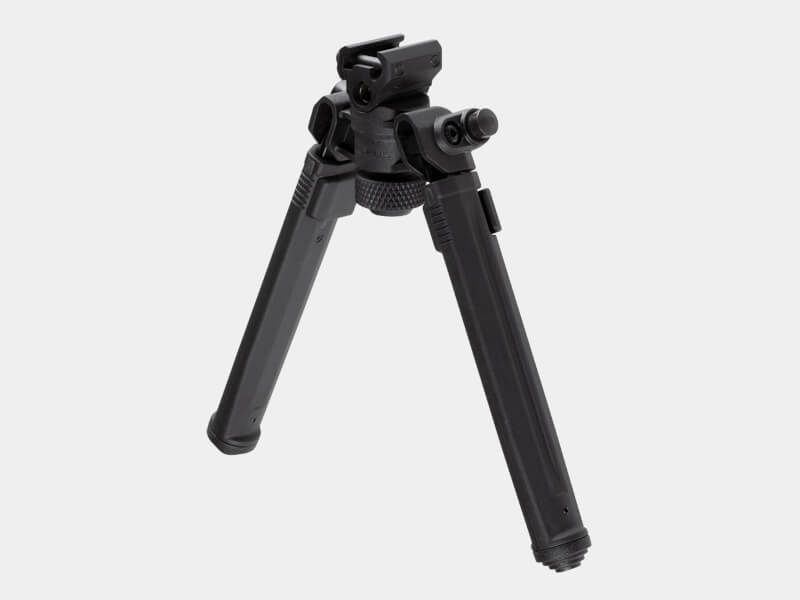
Pulling on the legs of the Atlas bipod lengthen the unit.
There are several positions the legs can be angled at, changing the height of the bipod.
Accu-Tac bipods are quickly recognizable by their unique shape and robustness.
These bipods are sturdy, but heavy.
you could adjust the angle by pulling on the leg and physically moving it into the desired notch.
Pulling down on the foot lengthens the bipod.
Levers on the sides of each collapse the bipod.
My test unit had a 1913 rail, though Magpul also offers an M-Lok model.
I mounted this bipod to the Picatinny rail on the bottom of the forend of one of my rifles.
Adjustments are relatively limited legs up or legs down.
The spring-tensioned legs are adjustable from 6.4 to 10.4.
They can also fold up flat against the rifle.
Pressing and holding the button on the rear of the leg allows you to choose your desired height.
Much of the beauty of this bipod is that each leg is independently adjustable.
Hands-On
I tested this bipod in several different shooting scenarios and had a friend do the same.
We shot it off a bench, from the prone position in dirt and off tires.
We tried several different bipod heights off the bench.
It provided a stable shooting position, allowing me to comfortably stand and fire the rifle.
How much I turned the knob determined how much tension was applied and thus how much movement was possible.
Its also important to note that this bipod can lock pan at 0 degrees while maintaining full tilt abilities.
This bipod is very compact and folds to 2.3 deep and 3.3 wide against the barrel.
It was actually easy to forget it was there.
We folded the legs and rested the rifle off a bag.
The 1913 bipod has soft rubber feet.
A single roll pin allows you to replace or swap the bipod feet.
This bipod is compatible with most Atlas pattern bipod replaceable feet, except for Atlas 5-H style.
I was most impressed with this bipods performance off an uneven tire.
It was especially lightweight, convenient, and handy on both flat and awkward surfaces.
Go to forum thread




